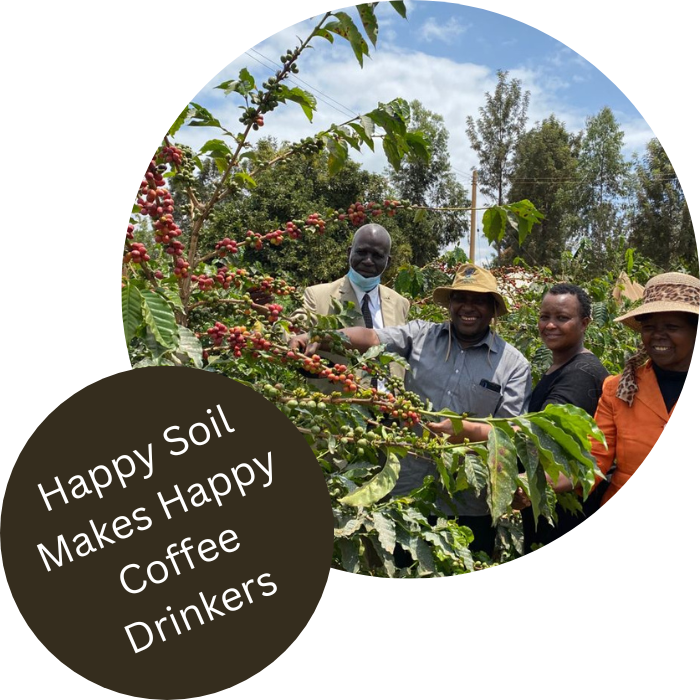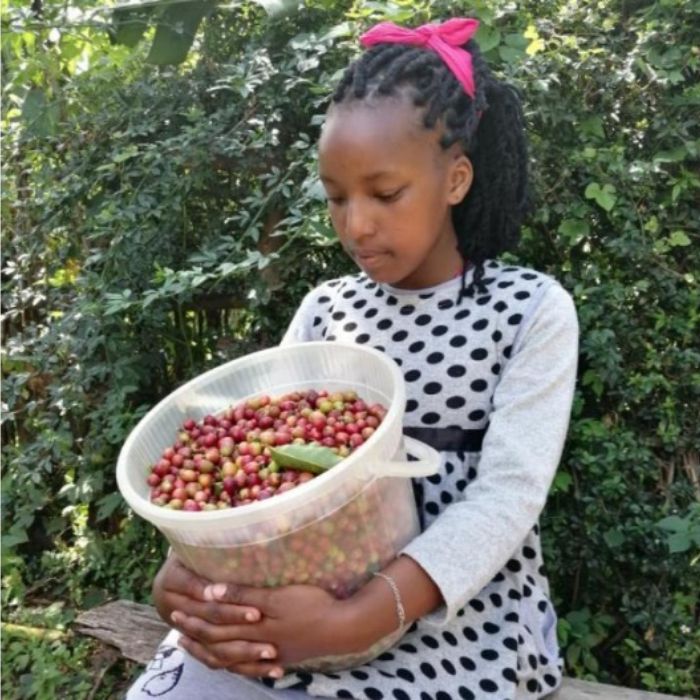Mindset shift & Leadership training
The farmers are organized into groups, based on building up local leadership, for ease of extension services and peer learning on the best regenerative agricultural practices and technologies.

Top Kenya Ltd is partnering with Kipkelion District Co-operative Union (KDCU Ltd.), which represents over 40,000 small scale coffee farmers. This collaboration focuses on working closely first with five farmers' societies.
Partnering with 40,000+ low-income small-scale Kipkelion coffee growers in Kenya to become financially sustainable farmers growing organic coffee.
Every sip of coffee will nourish the soil, the people, and create an independent household that will thrive and support the community around it for many years to come.
Documentary: Beyond the cup of coffee
Our mission is to transform our well-established practices of working with disadvantaged communities into a new business model that prioritizes the well-being of humans, the happiness of the soil, and ensures shared prosperity for all stakeholders in the value chain. Lisha Coffee is a transformative partnership aimed at creating a climate-wise value chain for small-scale coffee farmers.

The farmers are organized into groups, based on building up local leadership, for ease of extension services and peer learning on the best regenerative agricultural practices and technologies.
The coffee is grown by small-scale farmers owning land ranging from ¼ acre to 5 acres in mixed farms. Their main activity is coffee growing, intercropping and dairy cattle rearing. Manure from the dairy units is used to fertilize the coffee reducing inorganic fertilizers.
Above sea level in deep red loamy soils in the hills, valleys and ridges of Rift Valley.
This coffee is produced from Batian, Ruiru 11 ,K7, Grafted Ruiru and SL 28&34 varieties.
This area has an annual rainfall of about 1500mm. The Ecosystem allows for flowing rivers year-round. The farmers use the river waters for their farming and processing. Water retention & Irrigation system are being used to combat climate change.
The coffees are grown under shade to increase soil organic matter and ameliorate the microclimate surrounding the farms. This ensures a longer bean maturity period leading to sufficient accumulation of necessary acids and other minerals giving the coffee the unique and distinct Kenya highlands character.
Mature coffee beans are hand-picked selectively from the trees and processed mainly through the wet method. Otherwise, the mature cherry is taken straight to drying tables and the processing is bypassed.
to create a data collection culture by using an ethical AI platform and precise agriculture
is then taken to Kipkelion coffee mills where it is polished, graded, and cupped for quality analysis by a coffee expert.
Greyish Green
Medium Bold
June-October
FAQ
~6,000 tons of coffee
AA: Grade Screen 18 (7.35mm), 20-35% AB: Grade Screen 16 (6.85mm) Category 1 defects:0, 30-50%. C: Grade Screen 14
~85% (up to 90%)
Nutmeg Berry
Very bright
Overtones of berries and citrus fruit, dark chocolate, sugarcane note, hazel nuts, Bismatic rice creamy and smooth and rich body with slightly dry white winey.
Coffee is packed in 60 kg per bag
Ex-warehouse basis, F.O.B or CIF
Lily Ronoh +254 722 770456
Philippe Scheimann +972 528289296
info@lisha.coffee
P.O BOX 8-20209 FORT TERNAN,
Kenya